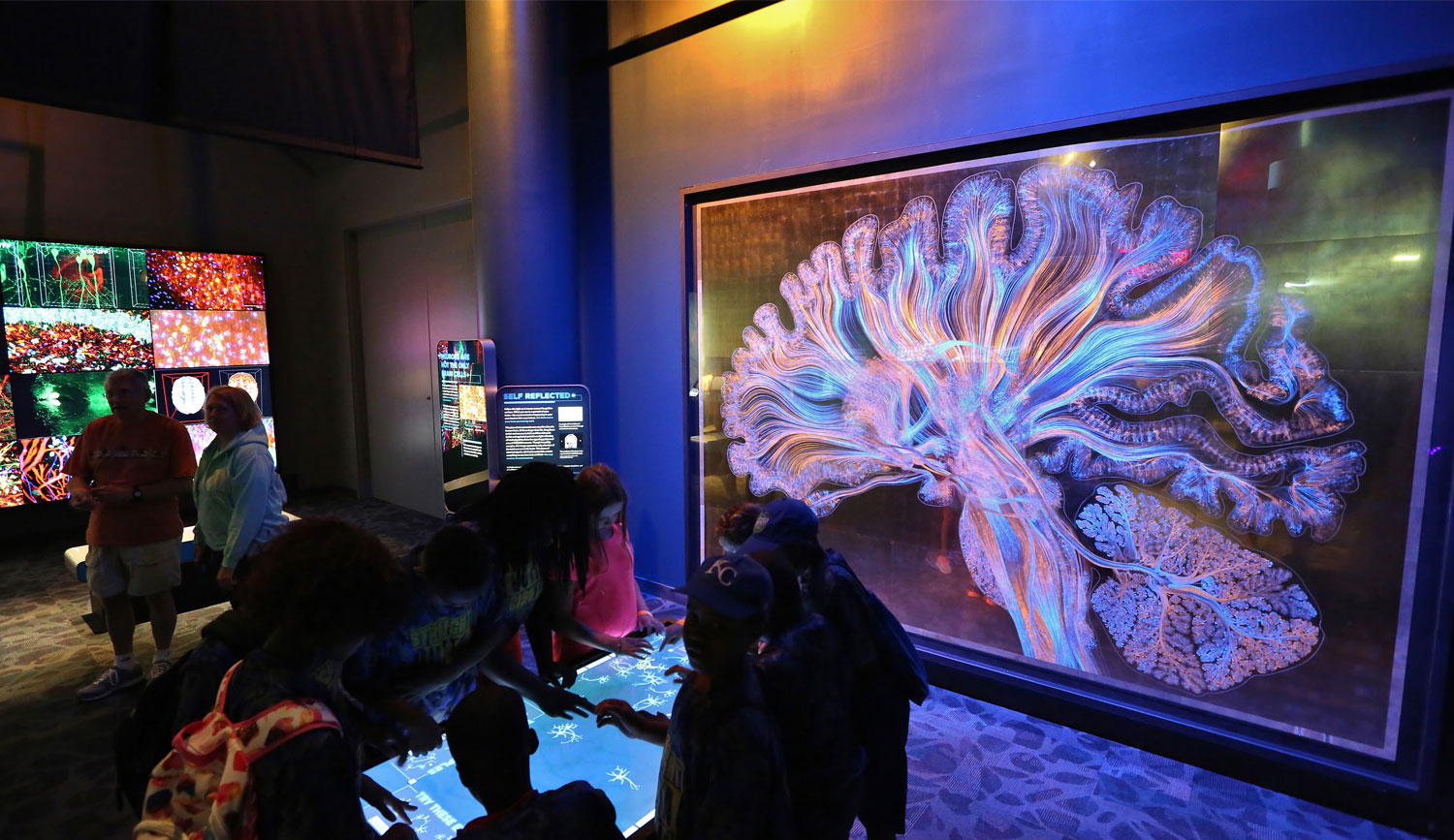
Date:
In 2018, the U.S. Brain Research through Advancing Innovative Neurotechnologies (BRAIN) Initiative celebrates its fifth anniversary. The goal of this unique nationwide alliance of research organizations has been to push our understanding of the brain farther and faster than ever before, by inventing new technologies, deciphering the details of brain function and behavior, and developing new treatments for brain disorders.
Next week, I’m excited to head to Capitol Hill to help lawmakers and scientists celebrate this milestone with The Franklin Institute’s favorite activities about brain science. Through this opportunity, I’ve gotten a firsthand look at the leading edge of neuroscience. Researchers are developing individualized brain stimulation to improve memory, learning the rhythms of brain communication, investigating the neural basis of social interaction, and more—emerging discoveries that will reshape the future of health and medicine.
The vision for the BRAIN Initiative became a reality under the co-leadership of neuroscientist and 2015 Franklin Institute Awards laureate Cornelia “Cori” Bargmann. Bargmann’s research, starring the tiny roundworm Caenorhabditis elegans and its simple nervous system, transformed the field with her investigations into how worms sense their surroundings, find food, and reproduce. Her creative, interdisciplinary approach has revealed connections between the genes, cells, neural circuits, and environmental cues that lead to animal behavior. These links extend well beyond the worm’s 302 neurons. Because many C. elegans genes have counterparts in the human genome, they also yield new insights into human brain development and disease.
Meet Cornelia Bargmann, 2015 Benjamin Franklin Medalist in Life Sciences.
Like the outsize impact of her tiny worms, Bargmann’s own influence on biology and medicine has grown to reach a global audience through the BRAIN Initiative. Today, in her current role leading the Chan Zuckerberg Science Initiative, Bargmann has tackled an even bigger challenge. How can the culture of biomedical research change to encourage more creativity, innovation, and collaboration? It’s no surprise, however, that her inspiration still comes from tiny worms.
Throughout its nearly 200 years of history, The Franklin Institute’s Awards Program has recognized many luminaries of science and technology who have changed our world. As we celebrate the 2018 class this month and reflect on the accomplishments of past honorees, Cori Bargmann continues to inspire.


